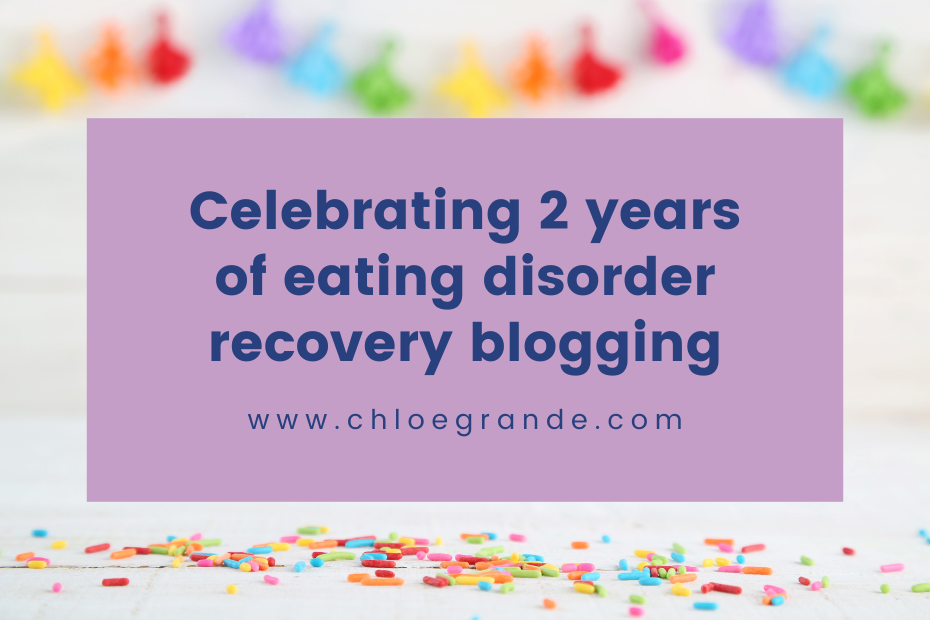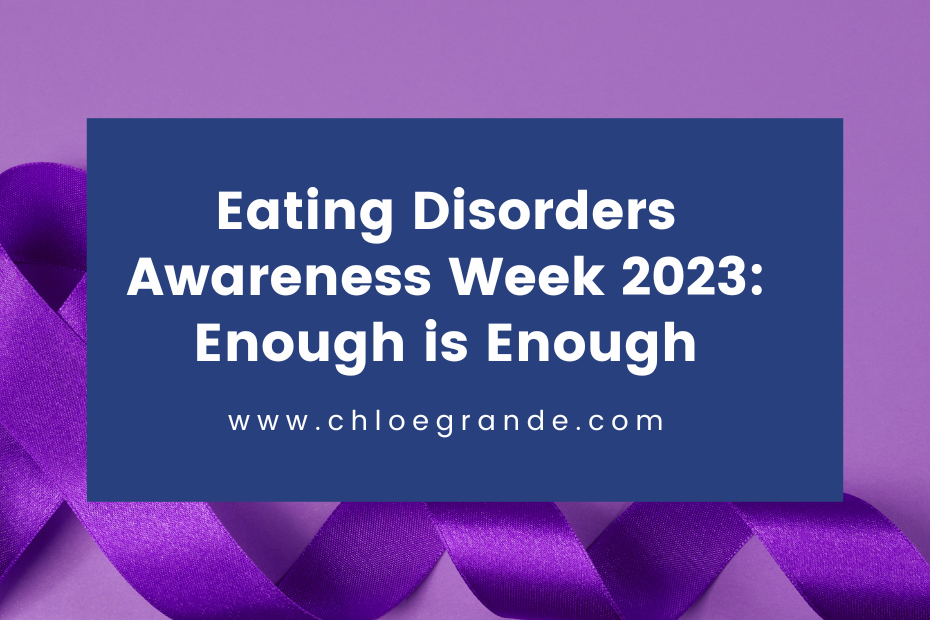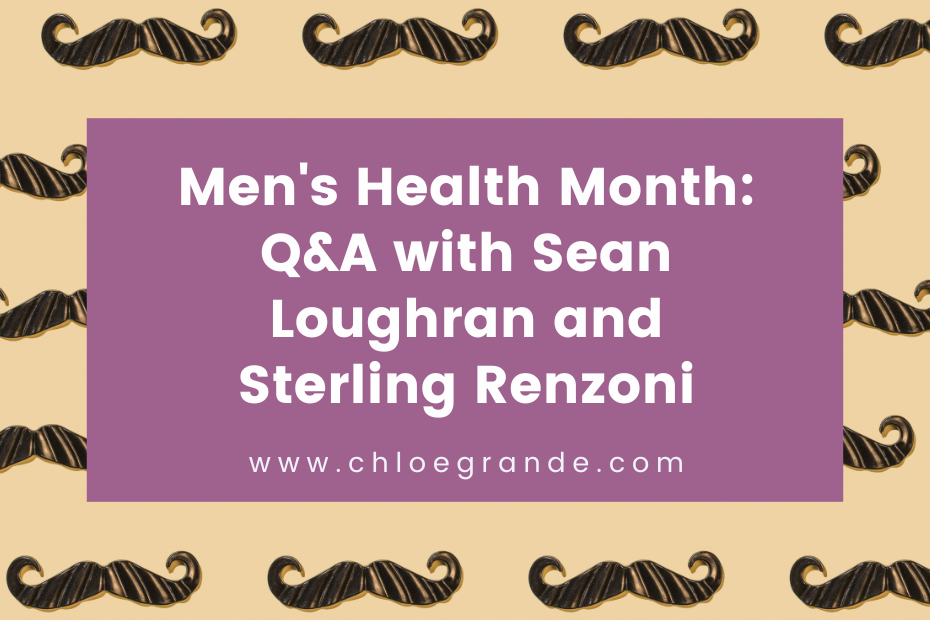If someone reveals to you that they have an eating disorder, first off, congratulations! It’s an immense privilege they trusted you with this deeply personal health information. What you say and do next with this disclosure is so important.
1. The worst thing to do — sit in silence
From my experience, the worst thing you can do is say nothing. That includes changing the topic and never bringing it up again. (I even wrote about this experience in a blog post for The Empathy Institute). Their reveal may come as a shock; however, imagine the fear they felt not knowing how you would react. If you’re at a loss for words, start by thanking them for their bravery to come forward.
Tip: Try saying something like: “Wow, thank you for telling me. That means a lot that you trusted me with this really personal information. I’m here to support you. What can I do to help?”
- The question at the end is crucial — a lot of people say, “I’m here to support you,” but may not act on that offer, or may not know how to. It can also be awkward to bring the topic up again, since it is a sensitive one.
- By adding an open-ended question, the person with the eating disorder can let you know the best way to support them.
2. Second worst — question the severity of their eating disorder
The second worst thing to say? “But you don’t look like you have an eating disorder!” We don’t??!! Well, I guess we did a great job at fooling you.
The reality is that there is no poster child for disordered eating. Anyone can have an eating disorder. Men, BIPOC (Black, Indigenous, People of Colour), transgender folks, disabled people, older adults and children can all struggle, regardless their background. (That said, there are social detriments of health that impact eating disorders.)
- Try to refrain from saying anything that focuses on someone’s physical appearance. Even “you look healthy” can be taken the wrong way.
- It’s not possible to know someone’s health simply by judging their appearance and what you think constitutes a ‘healthy’ body.
Tip: Try using non-physical compliments and words of encouragement: “You are really strong.” “You’re brave.” “You inspire me.” “You matter so much!”
3. Third worst — assume they’re almost healed
The third worst thing to say: “You’re better now though, right?” I’ve heard this one a lot. The thing with eating disorders is that they are a mental illness. It’s impossible to judge someone’s degree of sickness from the outside looking in.
- An eating disorder is like having a bully’s voice inside your head saying awful things all the time: “You are a failure. You are worthless. You need to eat less and have some control over your pathetic life. No one wants to be friends with you when you look like this.”
That voice can be quiet or loud, and it’s always possible to find ways to soften it. But at the end of the day, that stupid voice is constantly there in the background. What’s important is separating that voice from the person. You are not your eating disorder.
Tip: Don’t assume someone is well on their way to recovery. Try saying: “I hope you are getting the help you need.” “Mental illness can be really hard to talk about — thanks for bringing this up.” “Do you have a support system? I am here to talk if the eating disorder voice gets too loud.”
Key takeaway? Saying anything is better than nothing.
Here is my biggest advice when someone reveals they have an eating disorder to you:
- Ask how you can support them.
- Refrain from making any comments on their physical appearance.
- Reassure them that they are strong, brave and able to overcome the horrible eating disorder voice inside their heard.




I cannot recall my typical response when someone tells me that they have a disorder, but I appreciate your suggestion “Wow, thank you for telling me. That means a lot that you trusted me with this really personal information. I’m here to support you. What can I do to help?”.
Until now, I never considered an Eating Disorder to be “personal information”. Thank you for the different perspective.
You’re very welcome, Javon! To me, it’s felt like very personal information because there was always an element of secrecy and shame involved. Others may be very open with their eating disorder diagnoses and some may not tell many people at all. As long as you’re showing compassion and asking how to help, I really don’t think you can go wrong 🙂
Thanks for sharing, Chloë!
This is all very relatable to my experiences with OCD. I imagine that a lot of the issue stems from people being raised to believe that discussing mental illness is a bad thing, or that it’s something that should be kept private. When really, that can be detrimental to the healing process. It leaves people with only stereotypes and misinformation.
I can definitely agree that I get frustrated when people say that “i’m fine” because they can’t “see” the illness. Especially when we are conditioned to normalize ourselves as much as we can so as not to burden others with our problems.
When it comes to your first point, do you have any ways to navigate the awkwardness when they don’t say anything? Or do you find it’s too painful to explain why silence is hurtful? There’s nothing worse than feeling like a friend/confidante doesn’t care enough to offer a response… I try to just assume they don’t have the tools to know how to engage. But it definitely sucks!
Such great feedback, Sean! I’m sure there are many parallels to OCD and eating disorders. Both are so misunderstood and face negative stereotypes that even glorify the illnesses, making them seem like a lifestyle choice. It’s really hard to have an invisible illness that makes it appear like you’re functioning fine. I can resonate!
In my experience, to navigate the awkwardness of silence, I’ve tried to reframe it as the person not having the same mental health awareness or knowledge as me. Maybe they were taken by complete surprise. It’s one thing to say nothing and it’s another to say nothing in the moment, but explain that you’re surprised and perhaps follow-up with something afterwards like, “Thank you for telling me. I’m here for you.” I agree that it sucks 100%, if all you get is silence. One piece of advice is that you can always try bringing it up again and see if they react better then, but if you keep getting stonewalled this person may not be the best to confide in. I’d say build a small group of people you can fully engage in conversations around mental health! That way, the silence may not bother as much when you know there are others who truly care and understand.
Very well done Chloë ! I read all with great interest and wish you succes in having exchange of view with a lot of people.
Leonard and I will have COVID vaccination next week-end ! Keep well.
Brigitte ?
You are so kind, thank you Brigitte! That is so exciting to hear you are getting the vaccines. Amazing news and wishing you both a happy, healthy March ?